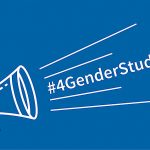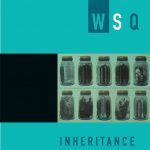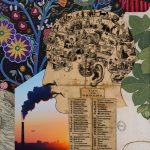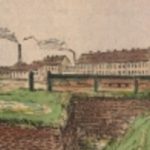 Aktionstag „#4GenderStudies“ am 18. Dezember 2021 (Web)
Aktionstag „#4GenderStudies“ am 18. Dezember 2021 (Web)
Zum fünften Mal steht der 18. Dezember 2021 in Österreich, Deutschland und der Schweiz im Zeichen des Wissenschaftstags #4GenderStudies. Wissenschaftler*innen, Forschungseinrichtungen und andere wissenschaftsnahe Institutionen nutzen diesen Aktionstag, um auf ihre Arbeit aufmerksam zu machen und über ihre Forschung zu berichten. Damit zeigen sie, dass die Geschlechterforschung einen wichtigen Beitrag zu politischen und kulturellen Diskursen und aktuellen gesellschaftlichen Herausforderungen leistet.
Auch die Universität Wien ist diesmal dabei: Das Team „Öffentlichkeitsarbeit“, das Referat Genderforschung (RGF) und die Forschungsplattform GAIN haben in Kooperation zahlreiche Forscher:innen und Lehrende gefragt, warum sie in der Genderforschung aktiv sind und mit welchen Forschungsfragen sie sich aktuell beschäftigen. Die Antworten werden prominent auf der Startseite der Universität Wien, auf Twitter und auf der Website des Referats Genderforschung veröffentlicht.
Die Statements wurden abgegeben von Giulia Andrighetto, Anna Babka, Bojan Bilic, Andrea B. Braidt und Nicole Kandioler, Boka En, Mart Enzendorfer, Sabine Grenz, Tatiana Konrad, Claudia Kraft, Julia Lajta-Novak und Team, der Sammlung Frauennachlässe, Sylvia Mieszkowski, Alexandra Mittermüller, Heidi Niederkofler, Susanne Reichl und Julia Hüttner, Maria Sagmeister, Katta Spiel, Katharina Wiedlack, Bianca Winkler, Katharina Wiedlack und Tania Zabolotnaya. Weiterlesen … (Web)






